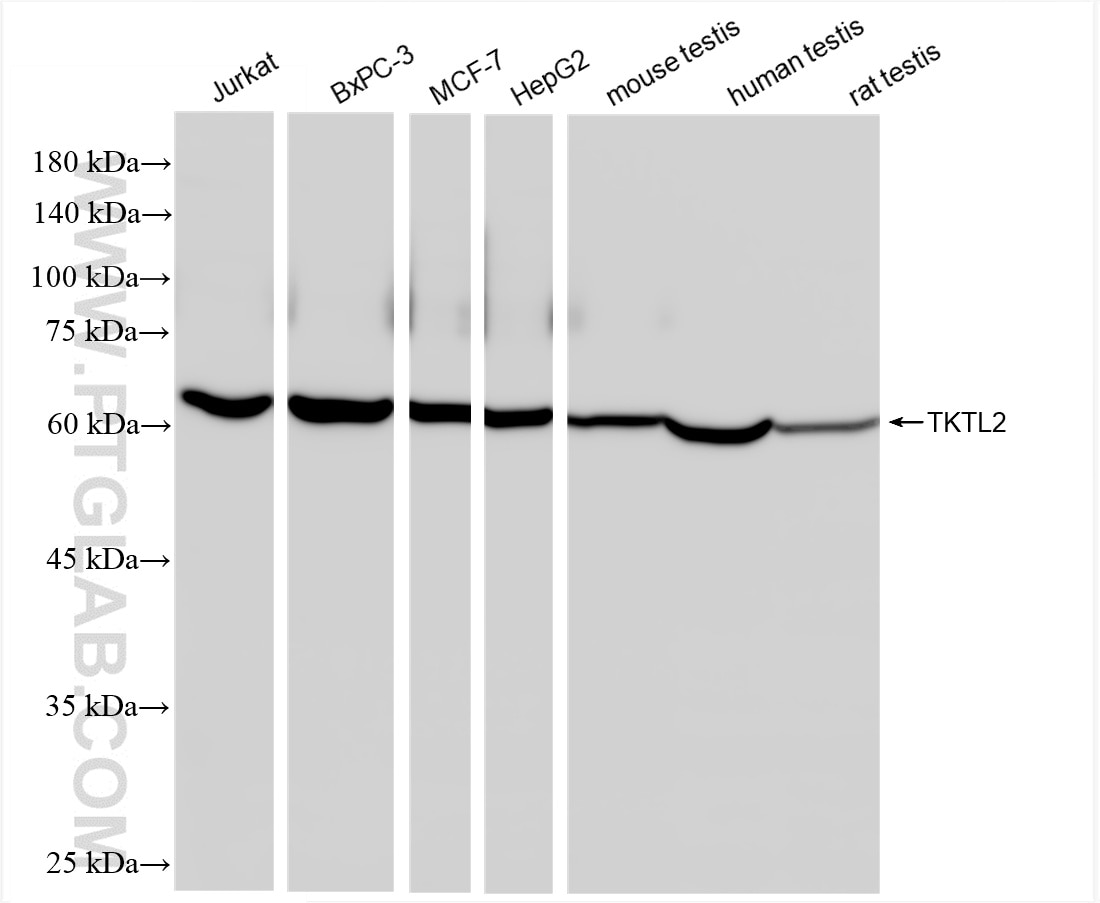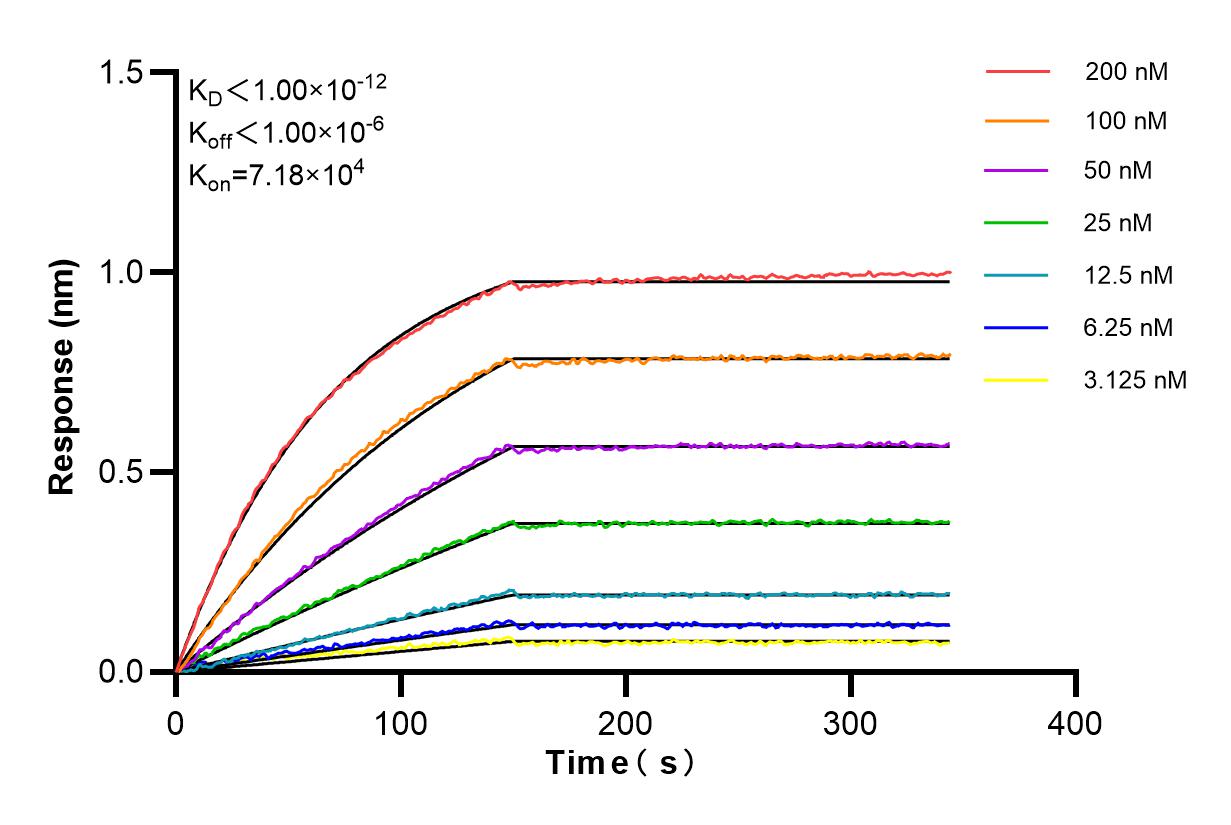Tested Applications
| Positive WB detected in | Jurkat cells, BxPC-3 cells, MCF-7 cells, HepG2 cells, mouse testis tissue, rat testis tissue, human testis tissue |
Recommended dilution
| Application | Dilution |
|---|---|
| Western Blot (WB) | WB : 1:5000-1:50000 |
| It is recommended that this reagent should be titrated in each testing system to obtain optimal results. | |
| Sample-dependent, Check data in validation data gallery. | |
Product Information
85612-3-RR targets TKTL2 in WB, ELISA applications and shows reactivity with human, mouse, rat samples.
| Tested Reactivity | human, mouse, rat |
| Host / Isotype | Rabbit / IgG |
| Class | Recombinant |
| Type | Antibody |
| Immunogen |
CatNo: Ag10884 Product name: Recombinant human TKTL2 protein Source: e coli.-derived, PGEX-4T Tag: GST Domain: 278-626 aa of BC028707 Sequence: IESQIQTNENLIPKSPVEDSPQISVTDIKMTSPHAYKVGDKIATQKTYGLALAKLGRANERVIVLSGDTMNSTFSEIFRKEHPERFIECIIAEQNMVSVALGCATRGRTIAFAGAFAAFFTRAFDQLRMGAISQANINLIGSHCGVSTGEDGVSQMALEDLAMFRSIPNCTVFYPSDAISTEHAIYLAANTKGMCFIRTSQPETAVIYTPQENFEIGQAKVVRHGVNDKVTVIGAGVTLHEALEAADHLSQQGISVRVIDPFTIKPLDAATIISSAKATGGRVITVEDHYREGGIGEAVCAAVSREPDILVHQLAVSGVPQRGKTSELLDMFGISTRHIIAAVTLTLMK Predict reactive species |
| Full Name | transketolase-like 2 |
| Calculated Molecular Weight | 626 aa, 68 kDa |
| Observed Molecular Weight | 68 kDa |
| GenBank Accession Number | BC028707 |
| Gene Symbol | TKTL2 |
| Gene ID (NCBI) | 84076 |
| Conjugate | Unconjugated |
| Form | Liquid |
| Purification Method | Protein A purification |
| UNIPROT ID | Q9H0I9 |
| Storage Buffer | PBS with 0.02% sodium azide and 50% glycerol, pH 7.3. |
| Storage Conditions | Store at -20°C. Stable for one year after shipment. Aliquoting is unnecessary for -20oC storage. 20ul sizes contain 0.1% BSA. |
Background Information
Transketolase-like 2 (TKTL2) plays an essential role in total transketolase activity and cell proliferation in cancer cells. TKTL2 is predicted to enable thiamine pyrophosphate binding activity and transketolase activity.
Protocols
| Product Specific Protocols | |
|---|---|
| WB protocol for TKTL2 antibody 85612-3-RR | Download protocol |
| Standard Protocols | |
|---|---|
| Click here to view our Standard Protocols |






